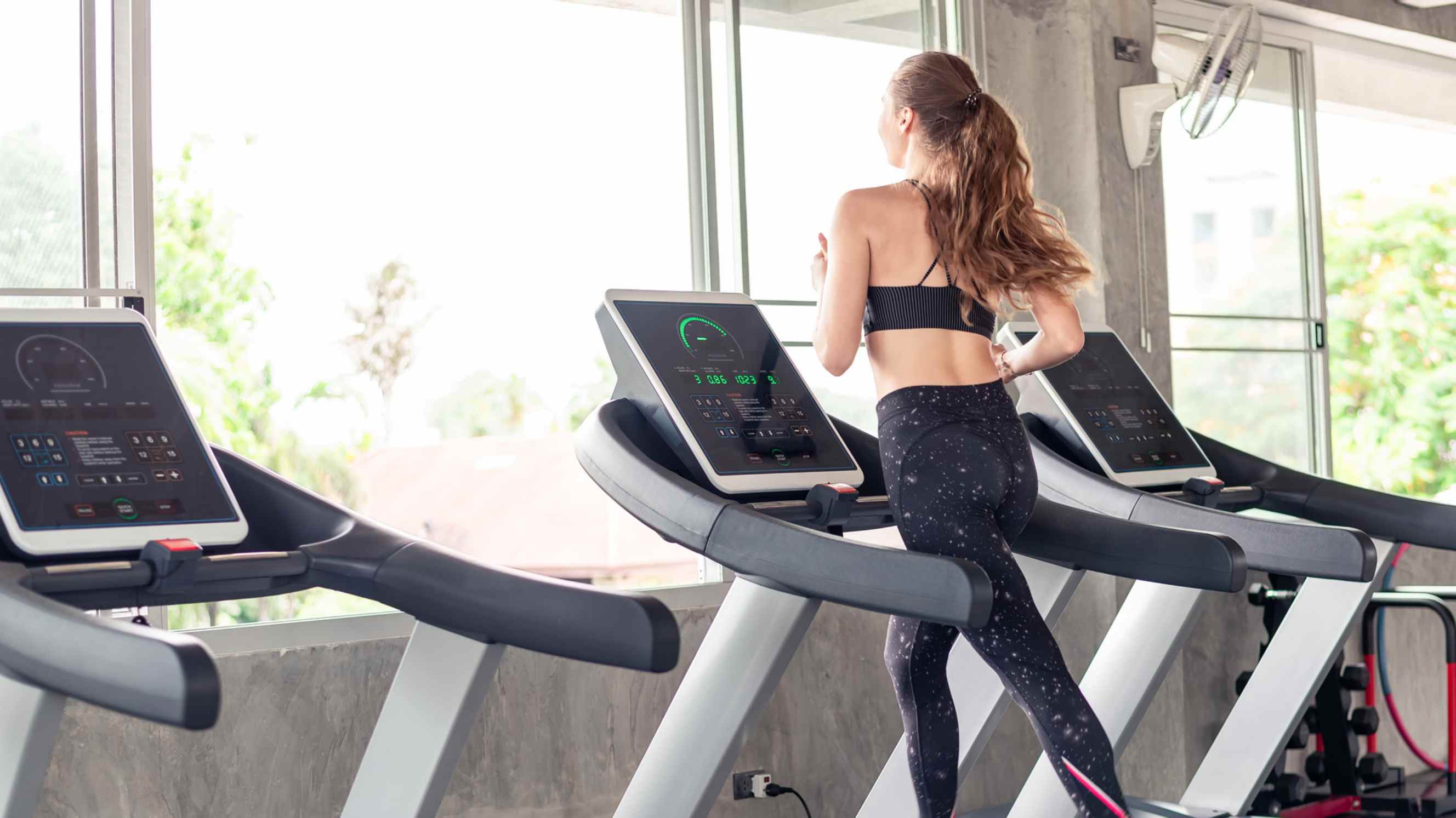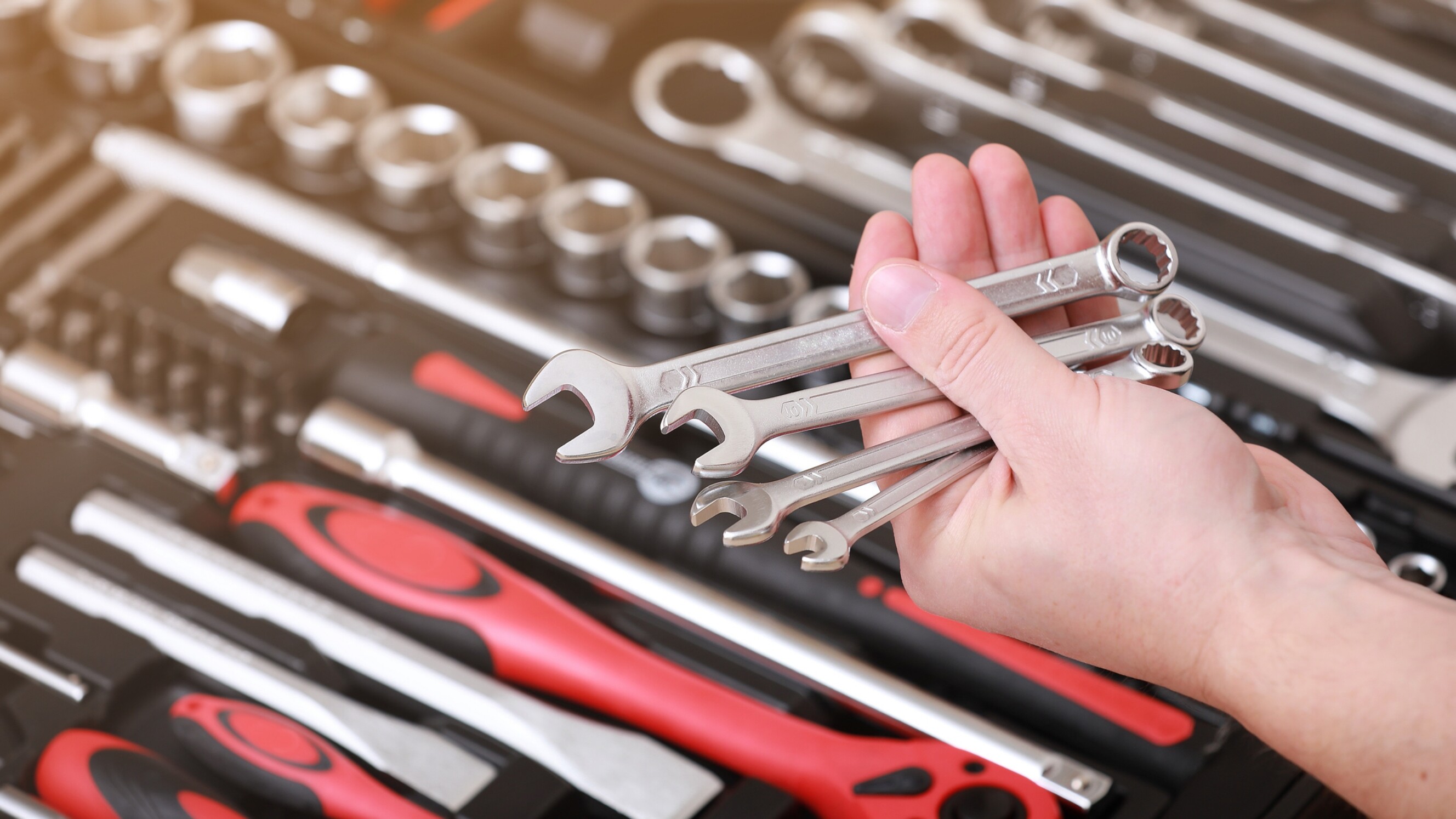- Home/
- Comparisons/
- Assembly/
- Cross Trainer vs Treadmill

Cross trainer vs treadmill: Which is the better choice?
Comparing the cross trainer and treadmill equipment based on their cardio benefit, joint impact, assembly process, and more.
Hire an expert assemblerLast Updated on
Key Facts
- A cross trainer is a fitness machine that allows low-impact, full-body workouts that simulate stair climbing, walking, or running without causing excessive pressure on the joints.
- A treadmill is a popular cardio machine that lets users walk, jog, or run indoors with adjustable speeds and inclines to mimic natural terrain and optimise fitness levels.
Deciding on the perfect piece of fitness equipment for your home workout can be a daunting task, especially when you need to choose between cross trainer vs treadmill. These two machines seem to be doing the same thing, so no wonder many people struggle to decide which one is better.
Both offer unique advantages and cater to different fitness needs. This makes the decision not just about preference, but also about which equipment aligns best with your health goals.
This article will explore the key differences between a cross trainer and a treadmill to help you make an informed choice. Read on to discover which equipment will suit your home fitness routine.
What is a cross trainer?
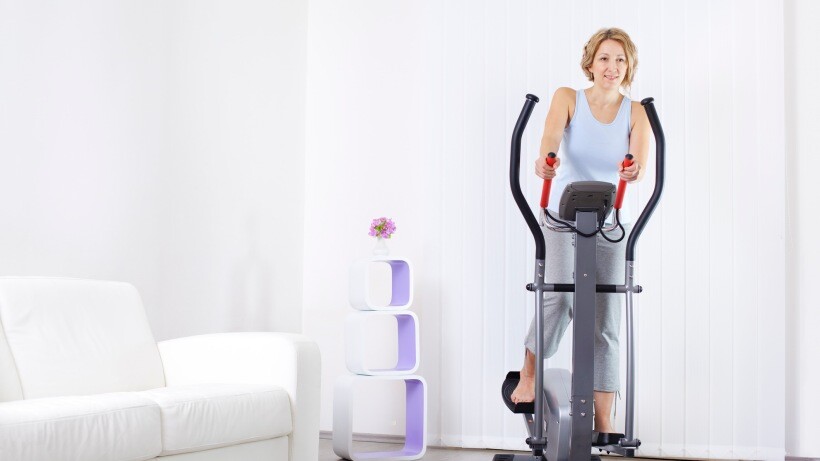
Exercise on an elliptical or cross trainer offers a smooth, fluid motion that combines upper and lower body conditioning. Because it’s designed to replicate the motion of walking, running, and stair climbing, it doesn’t really place undue stress on the joints.
Cross trainer is excellent for cardiovascular workouts and full-body toning. Another popular cross trainer benefit is its low-impact nature, which makes it ideal for individuals recovering from injuries.
What is a cross trainer good for? Well, it provides an effective cardiovascular workout that improves heart health, boosts stamina, and aids in weight loss. When it comes to cross trainer vs running machine debates, the cross trainer stands out for its joint-friendly workouts and the ability to engage more muscle groups simultaneously. It’s essentially a more balanced exercise regimen.
What is a treadmill?

A treadmill is a well-known exercise machine designed primarily for walking, running, or jogging in place. It features a moving belt that serves as the ground’s movement. It adjusts to the user’s speed and inclines to simulate outdoor terrains.
Treadmills are renowned for their versatility in cardio workouts, as they allow both high-intensity interval training (HIIT) and steady-state cardio exercises. They also cater to a range of fitness levels, from beginners to seasoned athletes.
Another thing, treadmills provide a controlled environment that is conducive to focused aerobic workouts. Therefore, they’re particularly beneficial for those looking to improve cardiovascular health, increase endurance, and promote weight loss.
Exercise bikes are common contenders to treadmills because they often serve the same functions. However, the latter’s straightforward design and ease of use make the treadmill a staple in both home gyms and fitness centres worldwide.
Treadmill vs cross trainer: Which provides a better home workout?
When considering the purchase of home workout equipment, choosing between a cross trainer or treadmill is almost always a struggle. After all, they both cater to various fitness goals, and each has its own distinct advantages.
Is a cross trainer good? Or maybe the treadmill is the way to go for you? Regardless of your initial pick, this comparison guide will talk about each factor that will surely matter to you.
In terms of cardiovascular workout
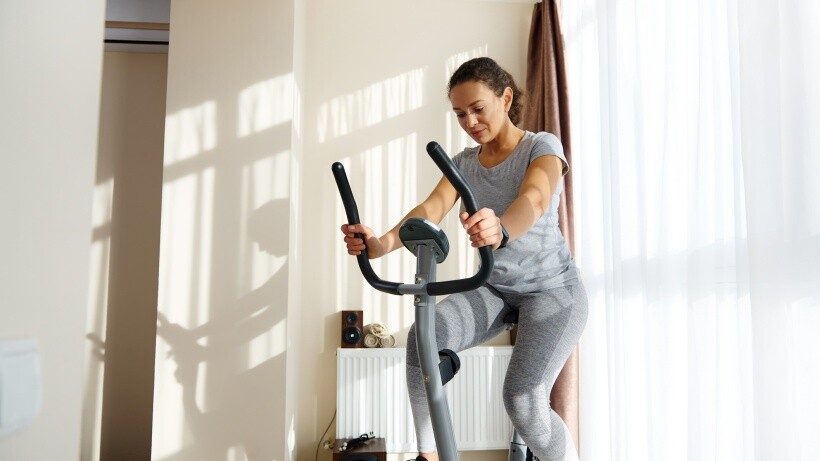
Both the cross trainer and treadmill are effective for cardiovascular workouts, but they offer different benefits.
A cross trainer provides low-impact cardio that engages both the upper and lower body, which can be beneficial for those seeking a full-body workout. On the other hand, a treadmill tends to offer a more intense cardio session that is effective for building endurance and promoting weight loss.
The high-impact nature of running or jogging on a treadmill is excellent for strengthening the heart and lungs. Although, it may not suit everyone, especially those with knee or back issues.
So, in terms of cardio impact, choosing between cross trainer machine vs treadmill largely depends on your personal fitness goals. It’s also wise to think ahead of health considerations and which form of exercise you find more enjoyable and sustainable.
In terms of joint impact
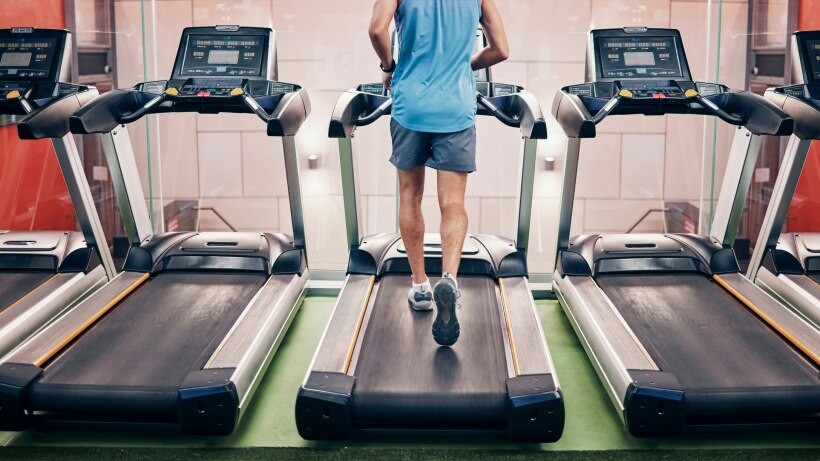
When comparing the joint impact of a cross trainer versus a treadmill, the cross trainer is generally kinder to the joints. This is primarily because it involves a smooth, elliptical motion that mimics natural movement patterns without the harsh impact on the knees, hips, and back.
In contrast, the treadmill subjects the body to significant impact with each footstrike. This is particularly the case when it’s set on running or intense jogging. This can lead to strain and discomfort in individuals with pre-existing joint problems or those who are prone to such issues.
Therefore, people who are exercising after major health events such as a stroke would probably benefit more from a cross trainer. Not to say that they’re not allowed to use the treadmill, but that approach would certainly need more guidance.
In terms of muscle engagement
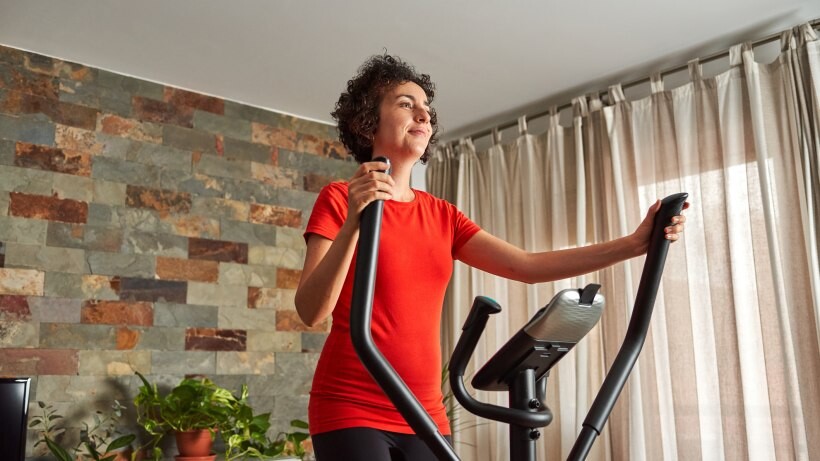
The cross trainer presents an advantage by providing a full-body workout that targets various muscle groups simultaneously. It engages the upper body, including arms and shoulders, through the use of moving handles. Additionally, it works the core and lower body muscles, such as the quadriceps, hamstrings, calves, and glutes, thanks to its elliptical motion.
On the contrary, a treadmill primarily focuses on the lower body, significantly engaging the legs and core, especially when adding an incline to mimic uphill running. While the intensity of a treadmill workout can lead to high-calorie burn and improve cardiovascular fitness, it lacks the upper body component that a cross trainer offers.
In terms of calorie burn

When comparing the exercise cross trainer to the treadmill in terms of the amount of calories they burn, the latter generally wins. This is because a treadmill allows higher-intensity workouts, particularly through running or steep incline walking. This intensity directly correlates with a higher energy expenditure.
However, the cross trainer, with its ability to engage multiple muscle groups simultaneously, also ensures a substantial calorie burn that can closely compete with that of a treadmill. This is especially the case at high resistance levels or vigorous speeds.
In terms of the assembly process

Assembly for both a cross trainer and a treadmill can vary significantly depending on the model and manufacturer. This includes setting it up for the first time and re-assembling it if you ever move your home gym somewhere else.
Generally, treadmills can be more straightforward to assemble, but they’re often heavier and bulkier. So, the initial setup is more challenging, and you should learn how to move it properly before trying to do so. This typically involves setting up the base unit, securing the deck, and attaching the console and handles. Treadmill maintenance is also something worth considering beforehand.
Cross trainers, on the other hand, may have a more complex assembly due to their multiple moving parts and alignment requirements. This includes attaching the arms, pedals, and, in some cases, multiple linkage systems. However, once assembled, they tend to occupy less floor space compared to treadmills and are easier to move.
Consider your technical skills, patience, and the available space in your home when choosing between a cross trainer and a treadmill based on the assembly process. If you find the assembly process to be challenging, it may be worth considering hiring an expert assembler as your best option.
In terms of cost

The cost of both a cross trainer and a treadmill can vary widely based on factors such as brand, functionality, and technology incorporated.
On average, basic treadmills start at approximately £389, likely due to their simpler mechanical structure and the vast market availability. However, high-end models equipped with advanced features like interactive training platforms, robust motors, and larger running surfaces can drive the price upwards of £3,474.
Cross trainers, alternatively, begin at an entry-level price of about £229.99. Their price can also escalate significantly for models that include enhanced ergonomic designs, adjustable stride lengths, and integrated entertainment systems, peaking at around £9,996. It’s noteworthy that the advanced models of cross trainers often incorporate more sophisticated technology to mimic a natural movement pattern, which can contribute to the higher end of their price range.
Experience hassle-free cross trainer or treadmill assembly with Airtasker
The elliptical/cross trainer vs treadmill selection boils down to personal health goals, space considerations, and budget. Maybe you lean towards the immersive, interactive workouts offered by high-end treadmills. Or perhaps you prioritise the low-impact, full-body engagement provided by cross trainers.
Regardless, setting up your home gym doesn’t have to be a challenge. With Airtasker, you can easily have your treadmill assembled or fitness equipment installed by skilled workers who will do the heavy lifting for you.
Make sure that your machine is assembled correctly and safely so you can focus on achieving your fitness goals instead. Post a task today and connect with experienced pros eager to help you kickstart your fitness journey.
Cross Trainer vs Treadmill
| Cross Trainer |
Treadmill |
|
| Cardiovascular Workout |
Offers full-body, low-impact cardio workouts |
Provides intense, high-impact cardio sessions |
| Joint Impact |
Low impact on joints |
Higher impact on joints |
| Muscle Engagement |
Engages upper and lower body simultaneously |
Primarily targets lower body and core |
| Calorie Burn |
Burns fewer calories than treadmill per session |
Higher calorie burn due to intensity |
| Assembly Process |
Complex assembly due to multiple moving parts |
Simpler assembly, but heavier and bulkier |
| Cost |
Higher initial cost, with advanced features |
More affordable entry points, varied prices |
FAQs on cross trainers and treadmills
Cross trainers can be expensive and take up significant space, making them less ideal for smaller living areas or those on a tight budget.
A cross trainer provides a low-impact, full-body workout that can be more efficient than walking, especially for those looking to engage multiple muscle groups simultaneously.
The difficulty depends on the workout intensity and settings used. However, some may find treadmills more challenging due to the impact forces and the need to maintain balance and pace.
Find assembly service, fast
Post a task
Related articles
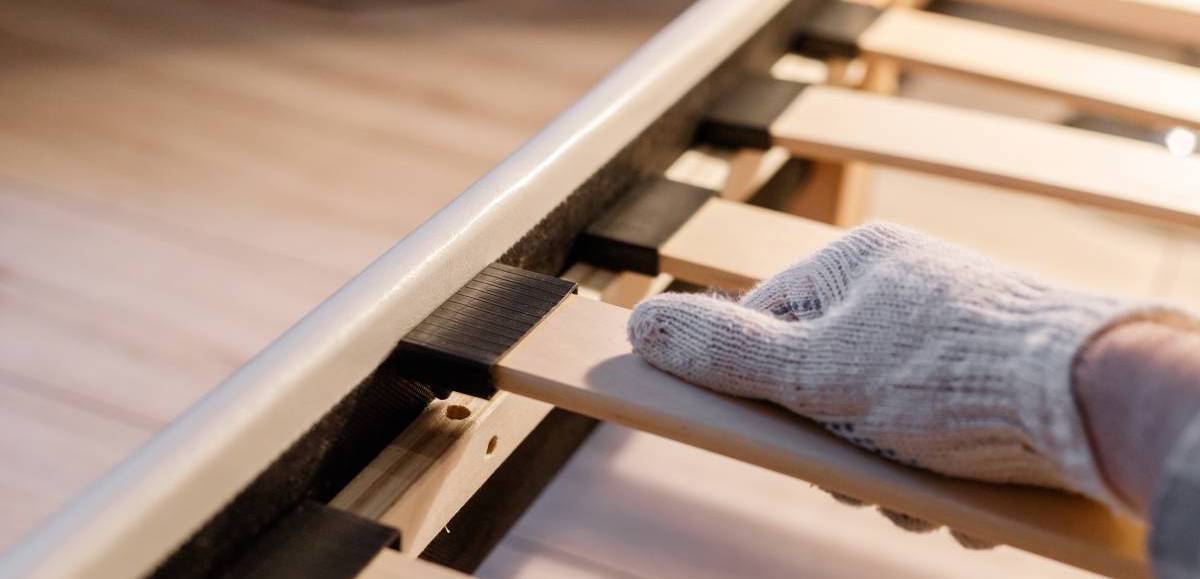
5 Steps to disassemble a bed frame
Read more



